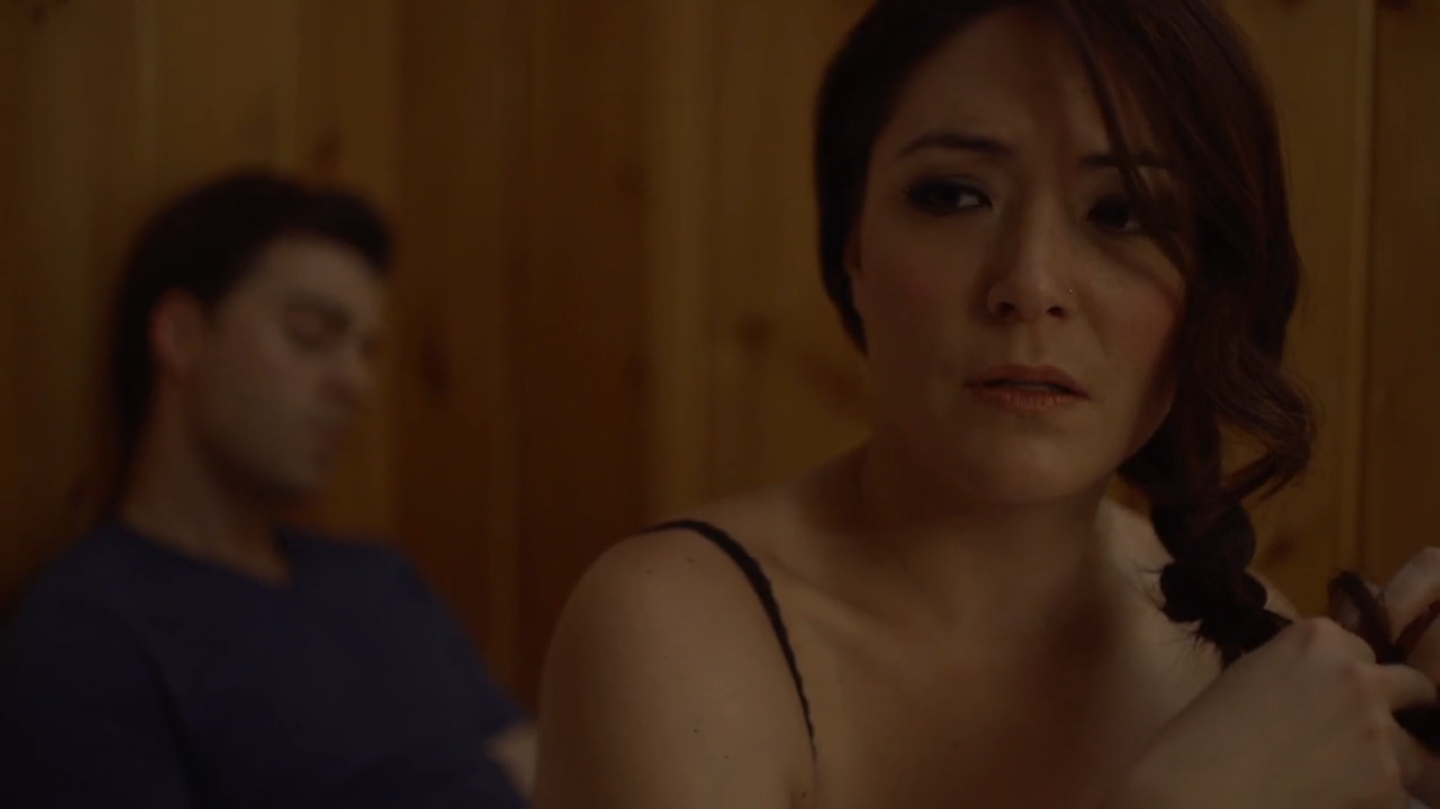The guys who run Slasher Studios (based out of Appleton) really dig horror movies; it’s right there in the name. After years of writing about horror and then making their own shorts, founders Kevin Sommerfield and Steve Goltz finally turned to Kickstarter last year to tackle their first feature length film, Don’t Go to the Reunion.
A group of former high school friends reunite under unusual circumstances when they receive invitations to attend a ten year class reunion. The trouble is, when they arrive at a rickety cabin in the middle of nowhere, no one can figure out who invited them, and that’s when things get messy. Once Don’t Go jumps ahead ten years after the friends’ public humiliation of a class loner, the story sharpens its focus around Stephanie Leigh Rose’s homecoming queen-turned-young professional. Now a successful law school grad, Rose is hesitant to reconnect with her old clique, and it’s only at the urging of her boyfriend (Spencer Harlan) that she agrees to attend the reunion. Clearly someone doesn’t know what movie she’s in.
Rose and Harlan give solid performances here — Harlan especially lends their relationship real depth and emotion — but Don’t Go has a solid all-around cast of character actors. Fans of Slasher’s previous efforts like “Teddy” will be pleased to see the return of Mike Goltz, here affecting a beer-guzzling burnout and a shadow of his days as a high school bully. While Kevin Sommerfield (who writes) populates his script with familiar tropes — the good-for-nothing jock, the prissy drama queen, the closeted homophobe, etc. — he elevates his horror knowledge above the level of subtext, blending self-awareness and obscure slasher mythologies to toy with expectations. It’s a riff on social cliques, high school grudges and of course, sex and alcohol that feels like an extension of the running catalogue Sommerfield and director Steve Goltz have already amassed on their blog.
Self-aware horror seems like it’s been en vogue since the peak of Wes Craven’s Scream, and recent efforts in The Cabin in the Woods and Sinister have pushed that “meta” aspect to new limits. So yes, some of Don’t Go to the Reunion feels like familiar territory, but its macabre conclusion feels fresh enough to validate the clichés it skewers, implicating us the audience as an accomplice in what feels like a decades-long ritualized slaughter of promiscuous teenagers.
With spots of rich color and shifts in focus, Don’t Go to the Reunion also flirts with an art house aesthetic uncommon in conventional horror, so it would be nice to see Sommerfield and Goltz tackle more inventive shocks in future efforts. Jump scares are certainly effective, but they’re so fleeting they make insightful concepts seems less substantial. Maybe next time? To quote the film itself, “There’s always a sequel!”
- Don’t Go to the Reunion, which ships on DVD on August 25, is available for pre-order now

